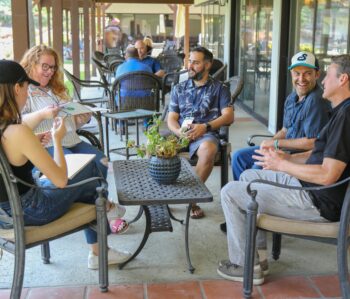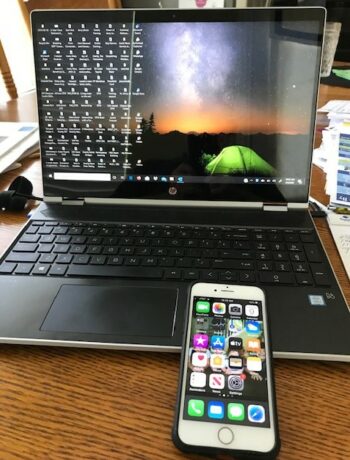
By Jerry Wiles —
A new study reveals how Bible reading has declined greatly in North America over recent years. “Spending time in the Word of God” is a phrase that has been around for some time. In most cases, when people refer to “time in the Word” they are talking about Bible reading. However, there are many ways of taking in the Word of God. Of course, there are still millions who do not have access to a Bible, nor can they read it with comprehension. Furthermore, there are millions who learn best by means other than print-based media. In other words, they are oral preference learners.
Oral Art Forms
In 1983 I came across a book titled, Oral Communication of the Scriptures: Insights from African Oral Art by Herbert Klem. It was a doctoral dissertation published in 1982. That book prompted me to do further research in the areas of Oral Cultures, Oral Traditions, Orality, and related disciplines. It was an eye opener for me to discover that, even today, most people in the world are Oral Learners, by necessity or by preference. It also provided some insight and understanding into what it will take to reach the last unreached peoples of the world and complete the Great Commission. It was a life changing season for many of us who are committed to effectively communicating the Gospel and making disciples

God’s Word in our Hearts
Scripture tells us to hide the Word of God in our hearts, to keep His commands in our hearts, to write His instructions on the tablet of our hearts. So, an important question is, how does one do that without access to the Bible or the ability to read it? There is a very simple answer to that question. It is the life, Spirit and teachings of Jesus that gives us the best answer and understanding. Jesus asked questions, told stories/parables, and created relationships and community. He did it in ways that have been reproduced over the past 2,000 plus years. His methods of communicating and making disciples crosses over all barriers and are transferable to all places and all peoples.
Tools of the Age, and Tools of the Ages

There seems to be a transition in thinking in recent years from Bible reading to Scripture engagement. We now know that there are many ways of taking in the Word of God. The ancient ways may be the best, but with modern technology, there is a plethora of methods and resources. The community of learning and practice is growing regarding all the ways we can receive, engage, experience, and communicate the Word of God. We often refer to the tools of the age, and the tools of the ages. The lessons we learn from Jesus and the Early Church are still relevant and effective today. Furthermore, we now have many modern technological resources that were not available just a few years ago.
New and Different Ways
Storytelling, song, dance, drama, parables, proverbs, poetry, and many other oral art forms are all ways of hiding God’s Word in our hearts and writing His instructions on the tablet of our hearts. Then we also have digital media, recording devices, radio, television, satellite communications and more, that were not available to earlier generations. We like to emphasize that we should use all means available in communicating the Gospel and making disciples. The global pandemic, since the early part of 2020, has caused many to learn new and different ways of communicating the Good News of Jesus and advancing the Kingdom.

Scripture Memory vs. Learning Stories
Scripture memory programs have been a real blessing in helping many to hide the Word in our hearts. Those, of course, would apply only to those who have access to written text and the ability to read. In our orality journey, we have found that hearing, learning, and retelling Bible stories is a superior way than just reading and memorizing. Using oral methods provides visual images, action and association that aids in memory. Plus, retelling, discussing, processing in community reinforces the message and applications of the stories. Truth that Sticks: How to Communicate Velcro Truth in a Teflon World, by Avery Willis and Mark Snowden is a great resource to better understand this orality phenomenon.
Renewing of our Minds
In relation to witnessing and ministering to others, it is reassuring to realize that the Holy Spirit will bring to our remembrance those things we have read or heard from His Word. The important thing is to continually saturate our minds in the truth of the Word of God. We are transformed by the renewing of our minds. That means our thinking is to be readjusted to be more in line with God’s will and purpose. The Apostle Peter tells us to always be ready to give an answer for the hope that is within us. The more His Word is hidden in our hearts, the more hope will be evident in our lives.
For more information, visit: www.water.cc/orality-training



